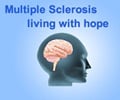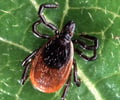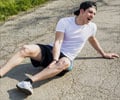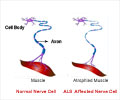Symptoms of Amyotrophic Lateral Sclerosis
In three-fourth of those with ALS, the limb is first affected. In some, the hand maybe affected first. During this time simple activities such as walking, climbing stairs or buttoning one’s shirt becomes laborious. Occasionally, when only a single limb is affected the condition is known as monomelic amyotrohy. The onset of the disease is so subtle that the patient is not aware of its arrival. It is only after the atrophy becomes evident that ALS is suspected.
Initial symptoms include:
- Weakness, particularly in the leg parts
- Weakness / clumsiness in hands
- Muscle twitching /cramping in shoulders, arms and/or tongue
- Stiffness of affected muscles (spasticity)
- Foot drop- difficulty in raising the front part of foot and toe
- Slurred, nasal speech
- Muscle atrophy (this is the typical sign of ALS)
- Exaggerated reflexes
In 25% of ALS patients, speech is affected first (dysarthria). It may become slurred, nasal, garbled and may be accompanied by a loss of volume. Very often tongue mobility is impaired and there is difficulty in swallowing (dysphagia).
Some patients experience uncontrollable laughing or crying (emotions) due to the degeneration of bulbar upper motor neurons.
Complications of Amyotrophic Lateral Sclerosis
Whichever part of the body is affected, the weakness and atrophy gradually spreads from the place of origin to other body parts. The patient gradually looses the ability to stand, walk or move around and becomes increasingly paralyzed and bed-bound.
Dietary - Chewing and swallowing becomes difficult for these patients. They tend to aspirate food particles into their lungs which can even lead to pneumonia. This can be avoided by using a food pipe. Due to poor nutrition it can be extremely difficult for the patients to maintain normal standards of weight.
Respiratory – ALS patients become increasingly dependant on ventilators for breathing and several of them die from respiratory complications or pneumonia. Towards the later stages the patient may opt for a tracheostomy and may get the help of a full time ventilator to assist breathing.
Neurological- ALS affected individuals are more prone to develop fronto- temporal dementia and Alzheimer’s disease
Perhaps what lends pathos to the disease is the fact that most of the patients remain intelligent and are, therefore, aware of their physical deterioration. This could be very upsetting for these individuals who often suffer from clinical depression.










